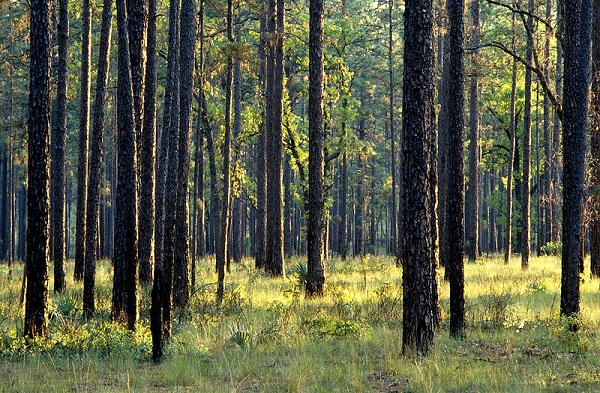Conservation groups won a victory last week in the fight over the regulation of biomass energy production and the strange thing is there were some liberals on the other side of the issue.
In a 2-1 decision [PDF], a U.S. Court of Appeals panel in the District of Columbia Circuit struck down a 2011 Environmental Protection Agency rule that deferred for three years regulating the greenhouse gas emissions from biomass burning in the same manner the agency regulates plants that burn fossil fuels.

Biomass power plants that burn forest products weren’t the only type of energy production at issue here, but they were a big bone of contention. Supporters of forest biomass – including leading liberals in the U.S. Senate like Oregon Democrat Jeff Merkley – argue that forest biomass can be far less harmful to the environment than fossil fuels because carbon released in burning the material is matched by carbon pulled from the atmosphere by new-growing trees. It’s the “carbon neutral” argument.
But the science is far from clear on that point and conservation groups – like the Center for Biological Diversity, which brought the suit against the EPA, and the Natural Resources Defense Council – argue that “emissions from power plants and other industrial facilities that burn biomass can accelerate global warming and contribute to a host of respiratory and cardiac problems.”
“Burning trees to generate electricity is dangerous, polluting, and ought to be limited to protect people and the environment,” Kevin Bundy, a senior attorney with the Center for Biological Diversity’s Climate Law Institute, said in a statement after the D.C. court’s ruling. “This important decision will reduce respiratory ailments, protect forests and help ensure a healthier, more livable climate.”
The Southern Environment Law Center said the ruling “is particularly important for the Southeast,” where rising European demand for wood to be used for energy production has driven a big uptick in logging.
“Now we have an opportunity for a more sensible, science-based policy, one that avoids clear-cutting the region’s wildlife-rich forests for energy while intensifying climate change impacts,” said Frank Rambo, head of the Clean Energy and Air Program for the group, which represented Dogwood Alliance, Georgia ForestWatch, South Carolina Coastal Conservation League and Wild Virginia in the case.
That said, it’s unclear what exactly happens next. As the Wall Street Journal noted in a news story, while the court struck down the EPA rule, “it didn’t specify a timetable for the agency to act.”
In making its three-year deferral, the EPA had said [PDF] it needed additional “time to effectuate a detailed examination of the science associated with biogenic C02 emissions and to consider the technical issues that the agency must resolve in order to account for biogenic C02 emissions in ways that are scientifically sound and also manageable in practice.”